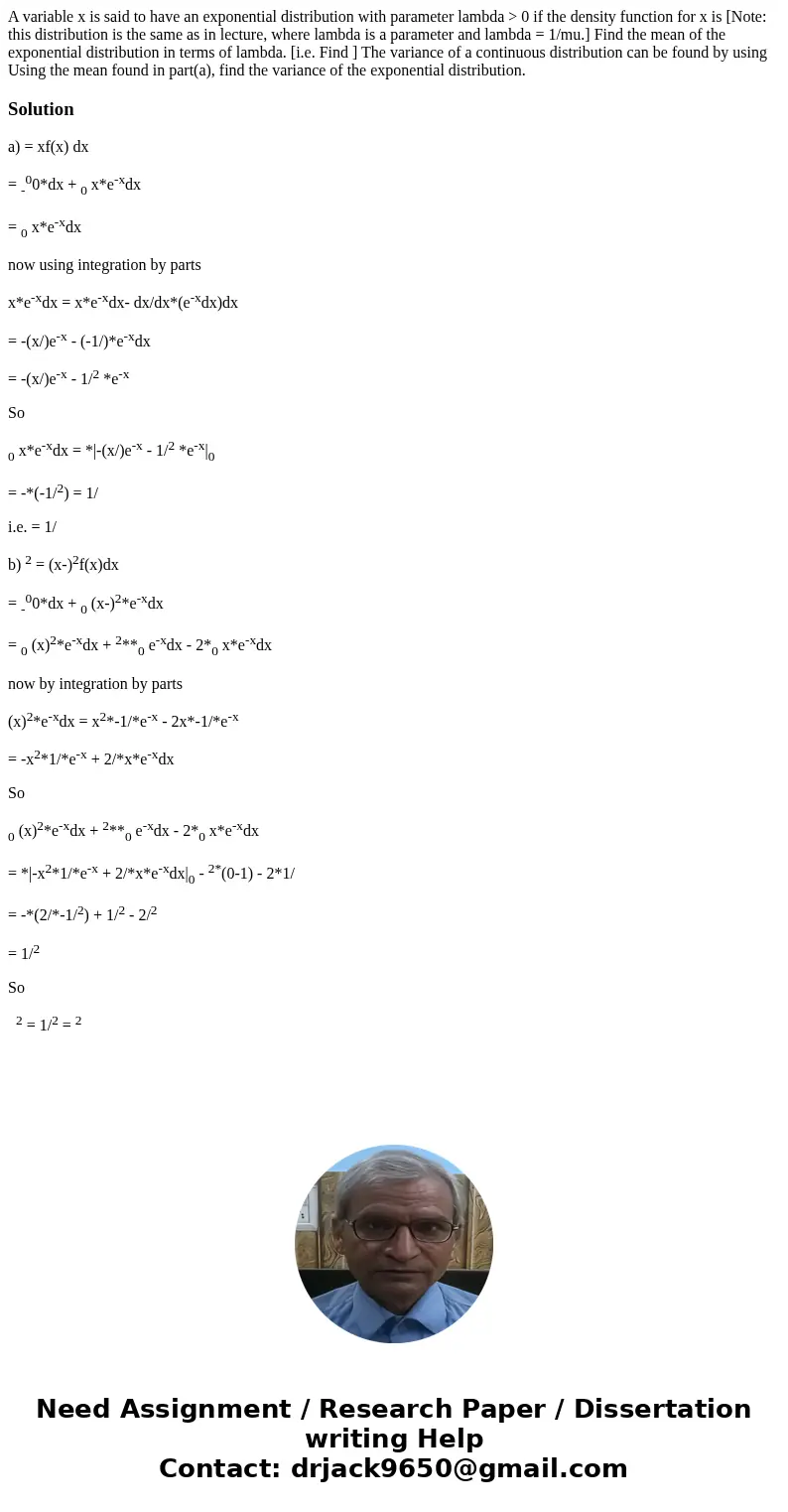A variable x is said to have an exponential distribution wit
A variable x is said to have an exponential distribution with parameter lambda > 0 if the density function for x is [Note: this distribution is the same as in lecture, where lambda is a parameter and lambda = 1/mu.] Find the mean of the exponential distribution in terms of lambda. [i.e. Find ] The variance of a continuous distribution can be found by using Using the mean found in part(a), find the variance of the exponential distribution.
Solution
a) = xf(x) dx
= -00*dx + 0 x*e-xdx
= 0 x*e-xdx
now using integration by parts
x*e-xdx = x*e-xdx- dx/dx*(e-xdx)dx
= -(x/)e-x - (-1/)*e-xdx
= -(x/)e-x - 1/2 *e-x
So
0 x*e-xdx = *|-(x/)e-x - 1/2 *e-x|0
= -*(-1/2) = 1/
i.e. = 1/
b) 2 = (x-)2f(x)dx
= -00*dx + 0 (x-)2*e-xdx
= 0 (x)2*e-xdx + 2**0 e-xdx - 2*0 x*e-xdx
now by integration by parts
(x)2*e-xdx = x2*-1/*e-x - 2x*-1/*e-x
= -x2*1/*e-x + 2/*x*e-xdx
So
0 (x)2*e-xdx + 2**0 e-xdx - 2*0 x*e-xdx
= *|-x2*1/*e-x + 2/*x*e-xdx|0 - 2*(0-1) - 2*1/
= -*(2/*-1/2) + 1/2 - 2/2
= 1/2
So
2 = 1/2 = 2

 Homework Sourse
Homework Sourse